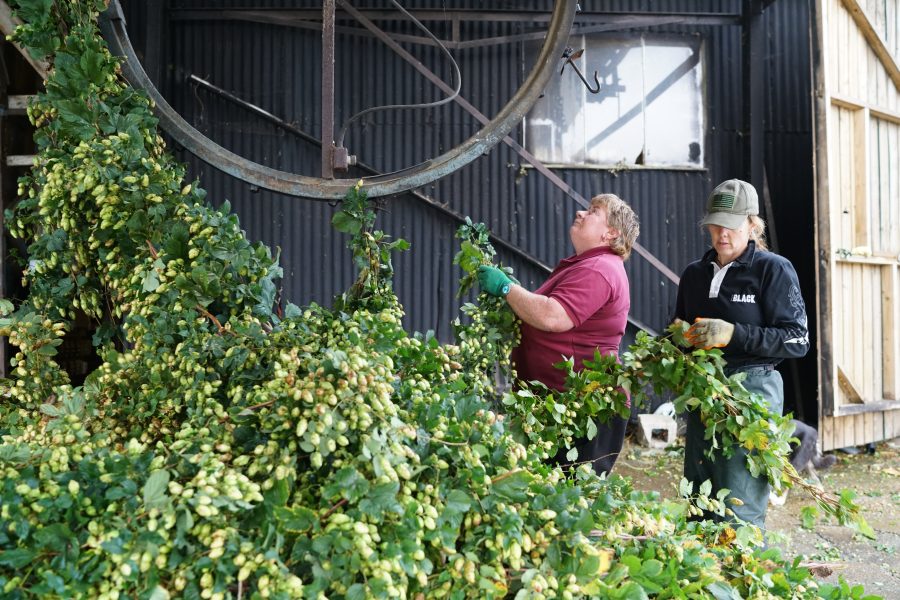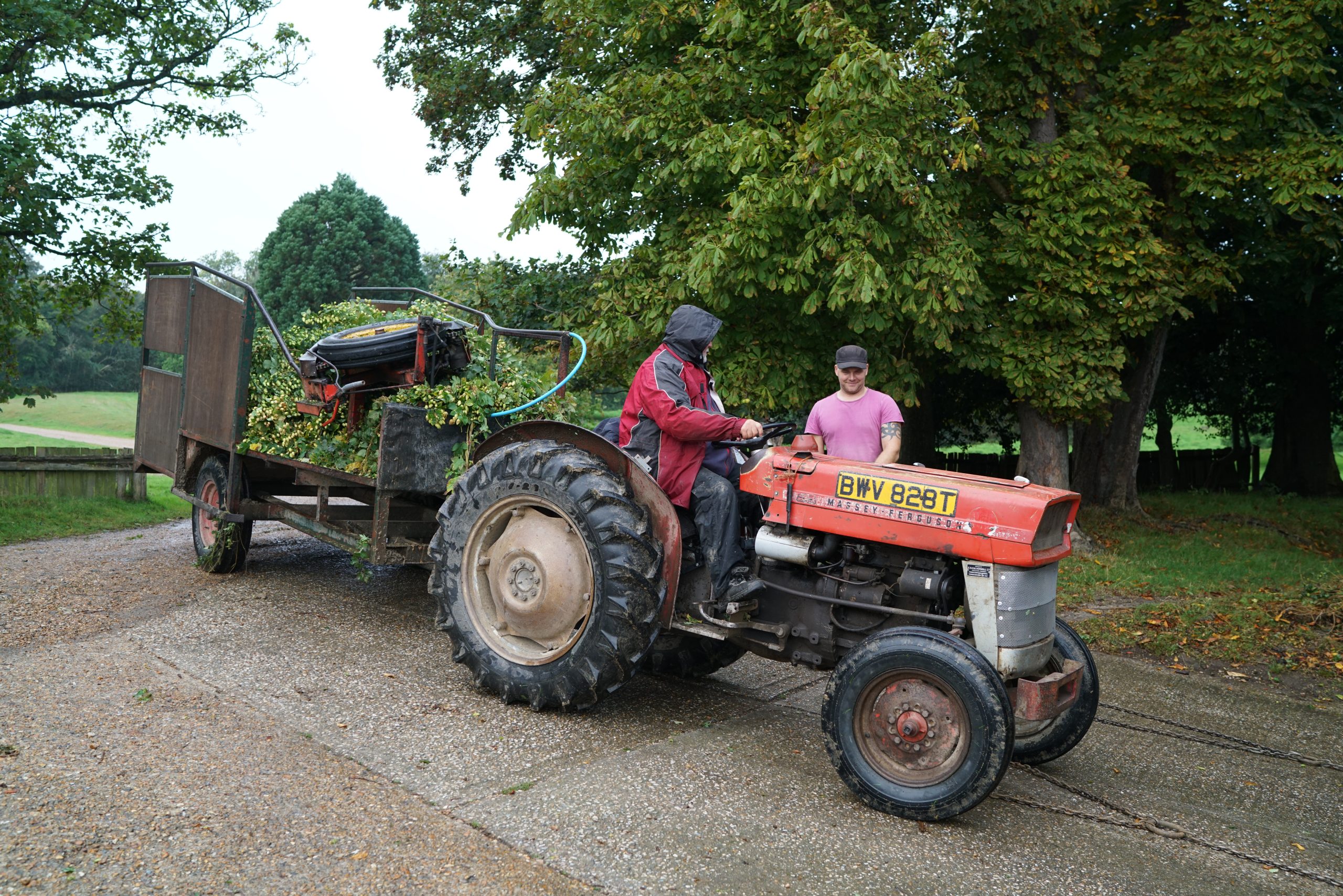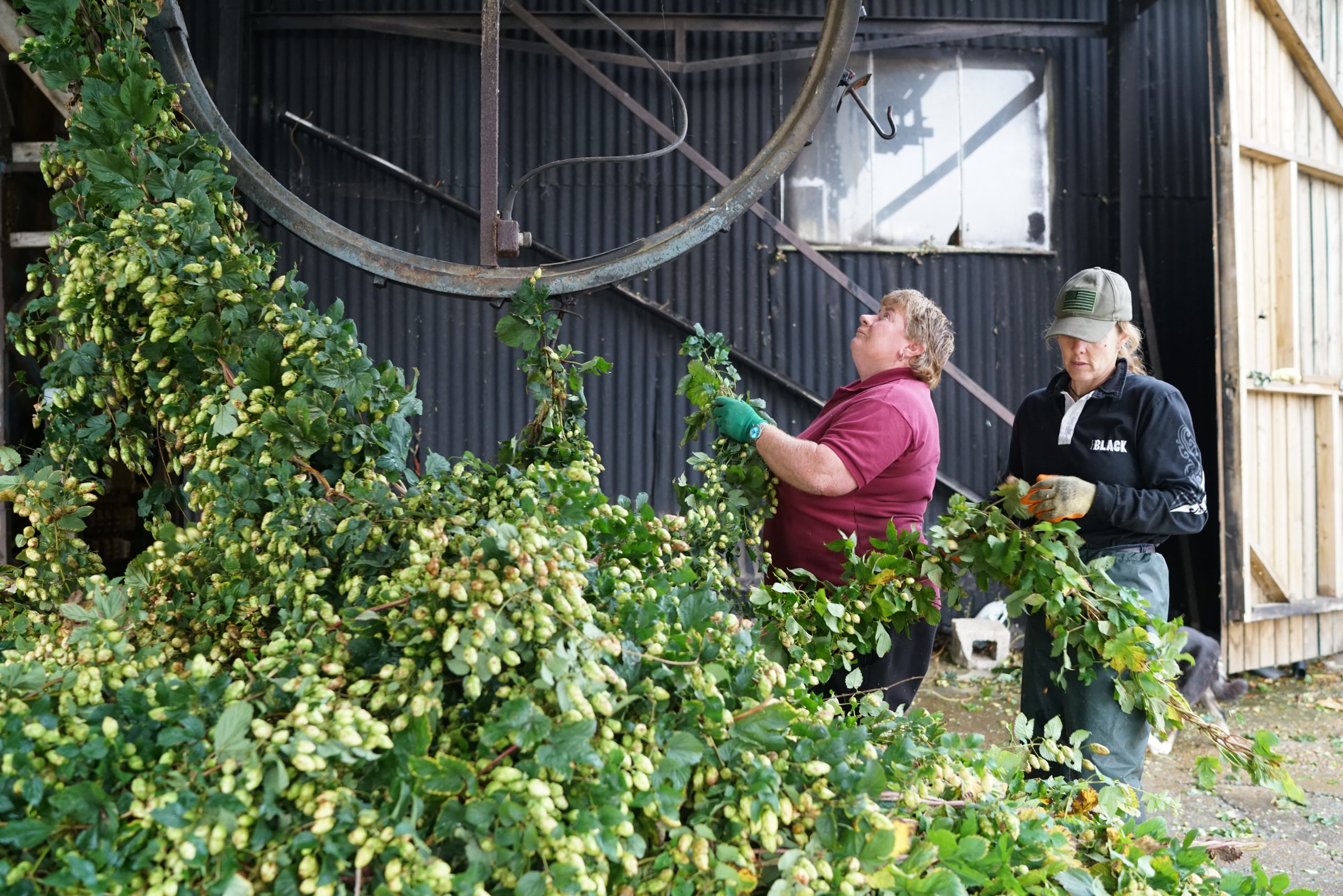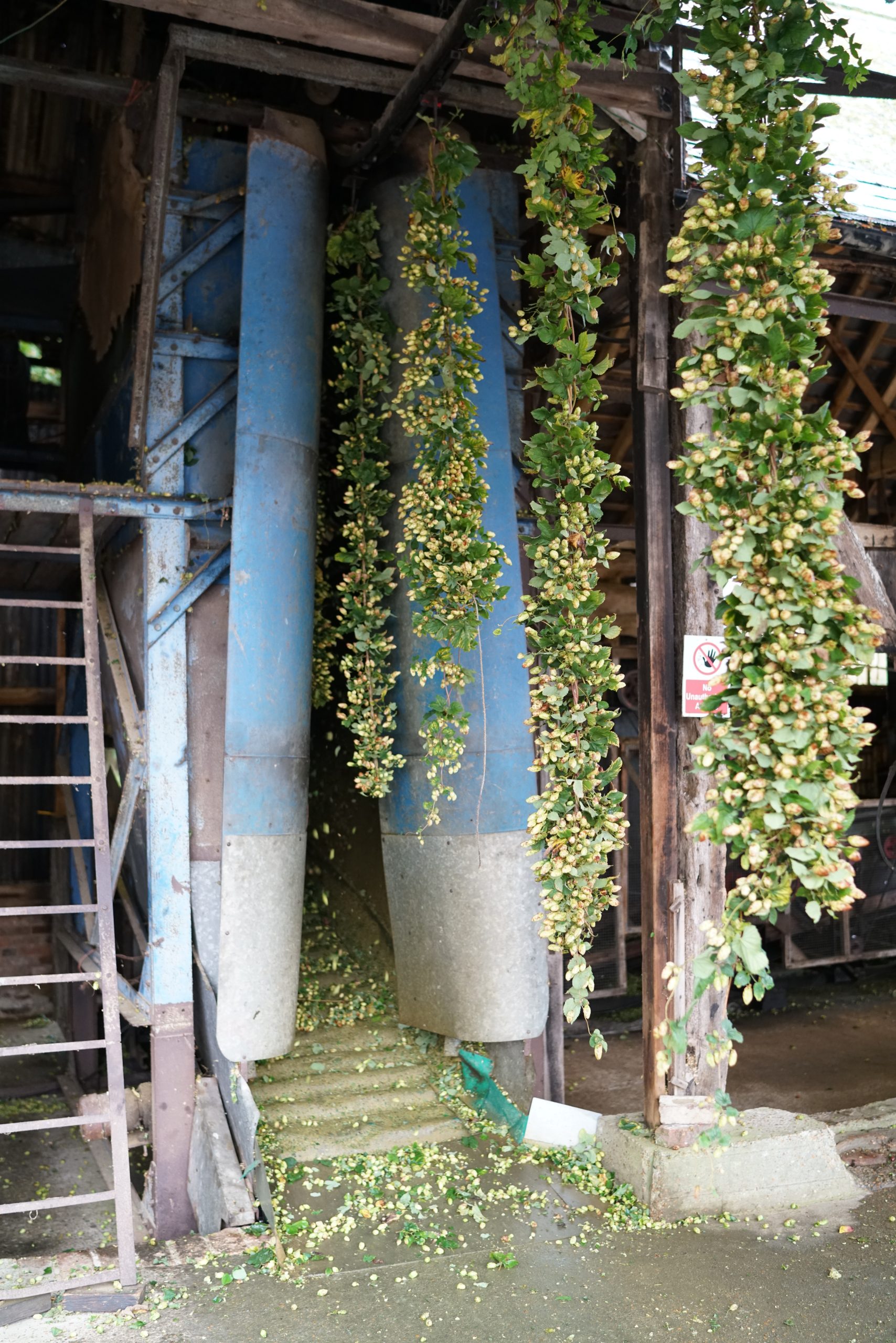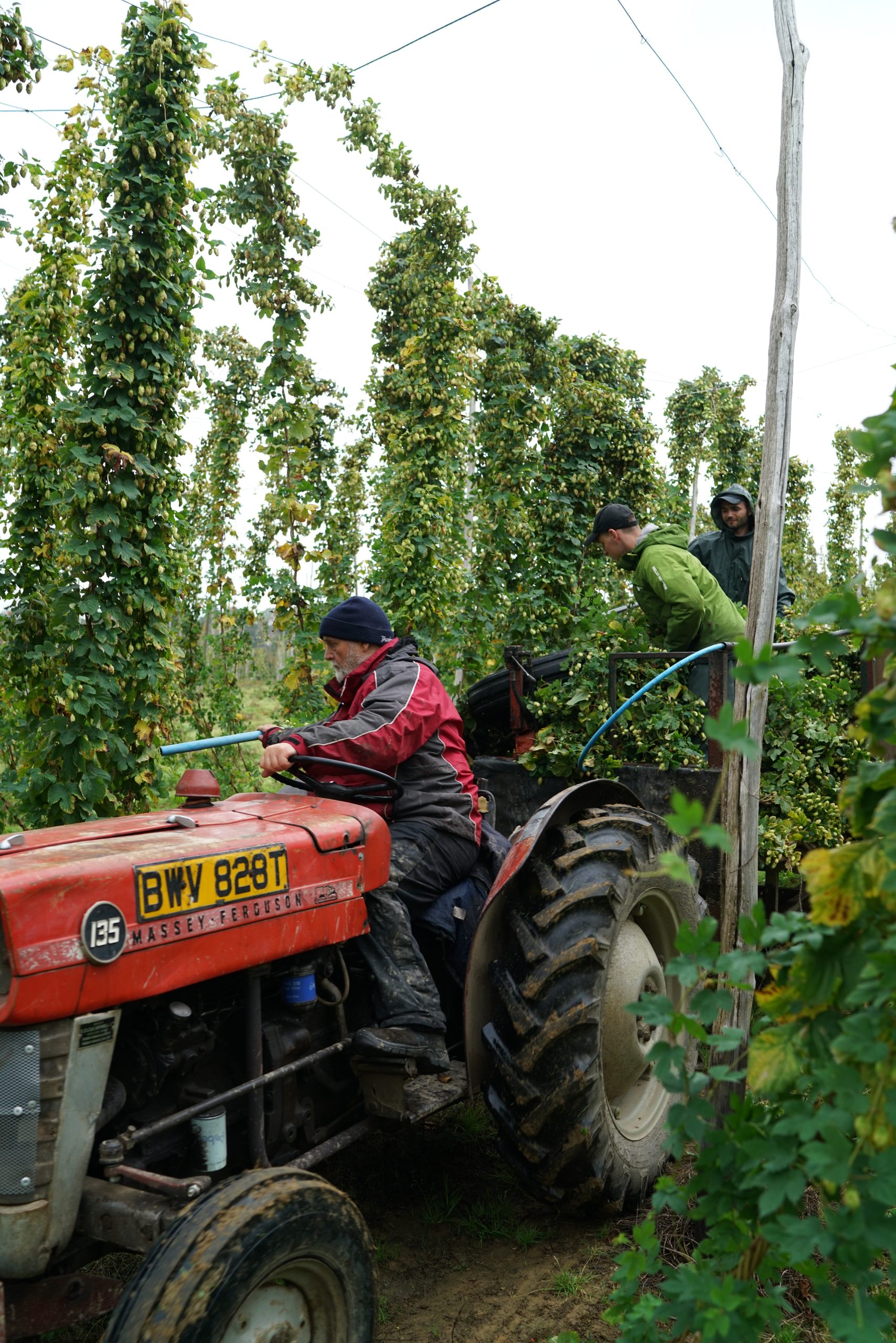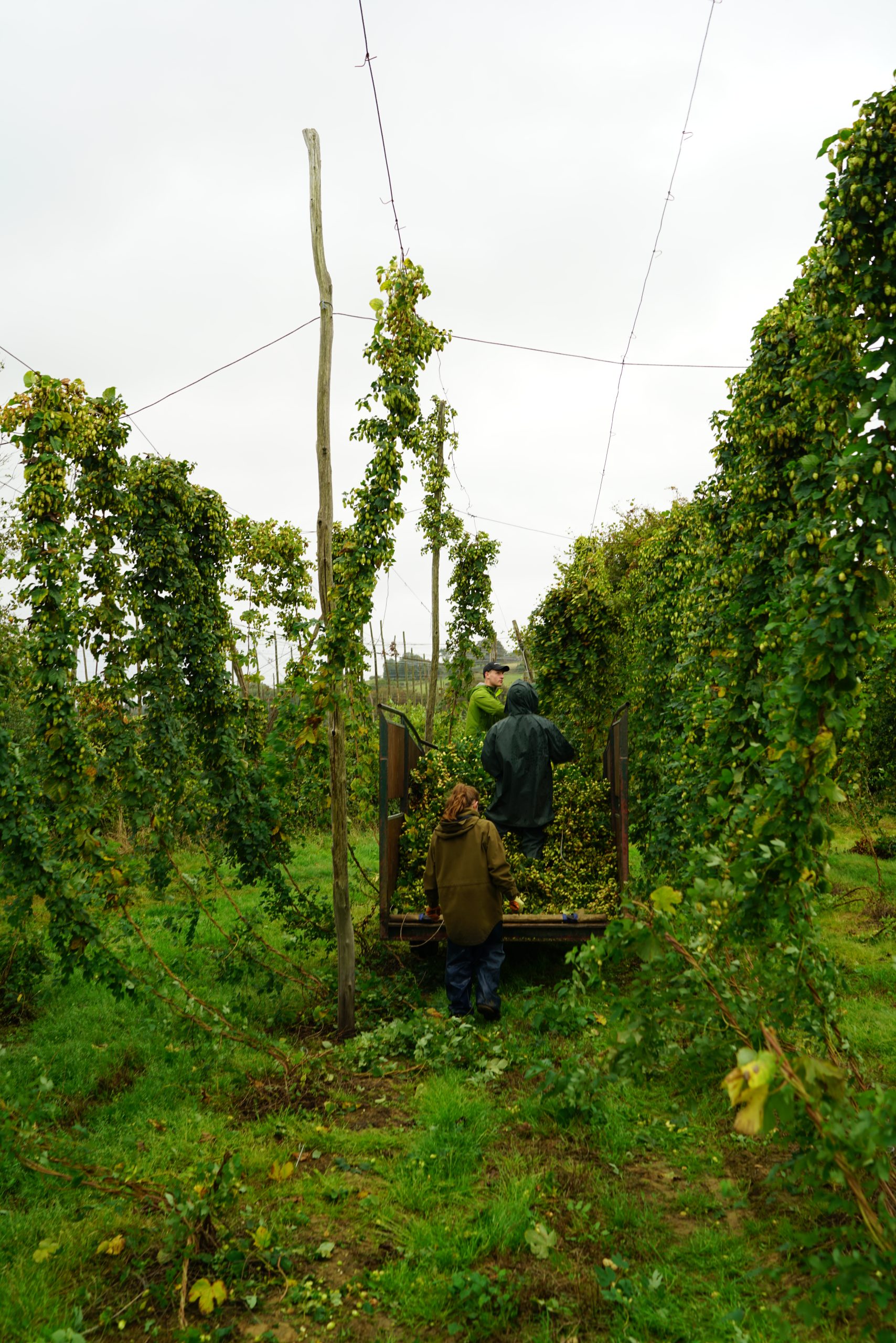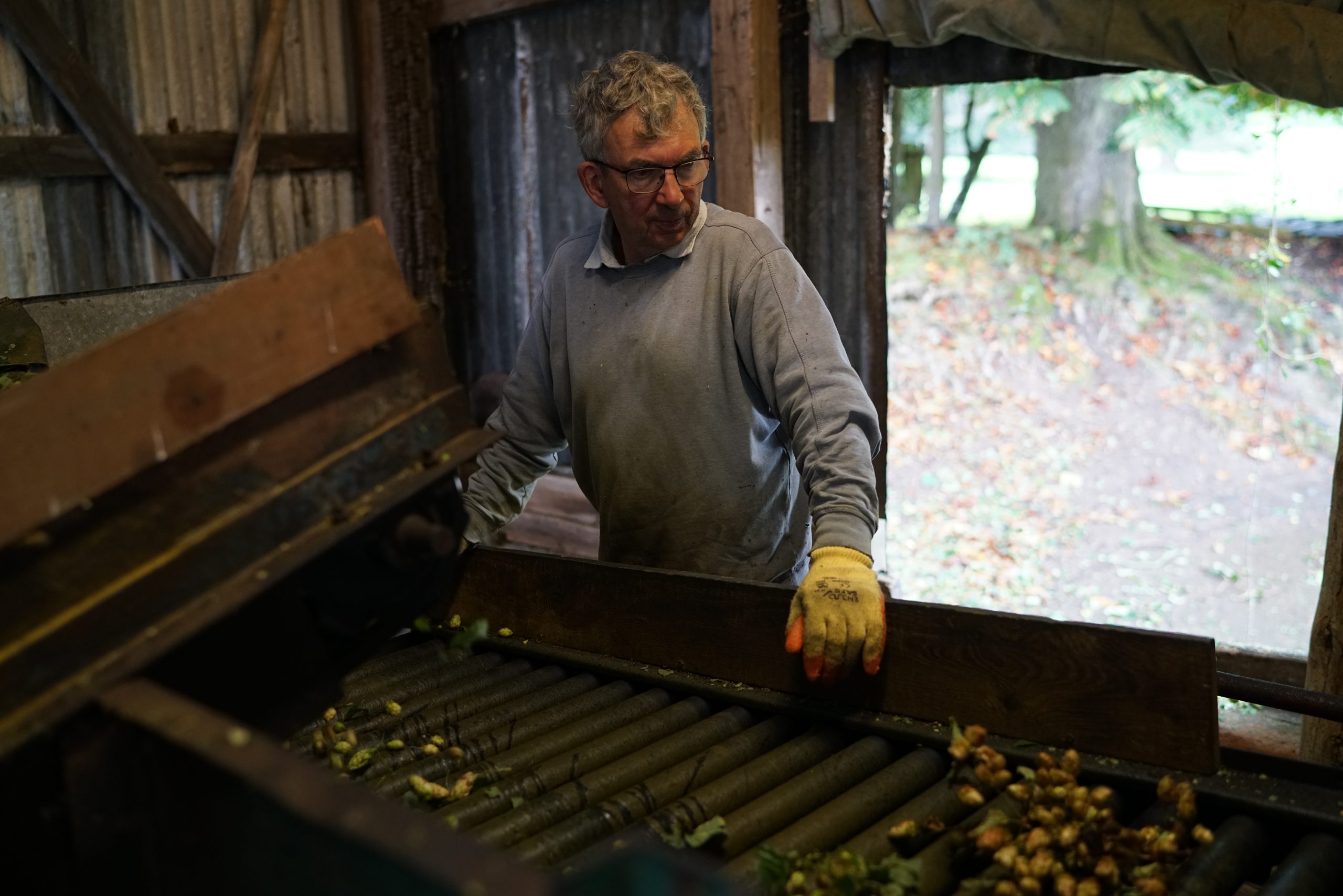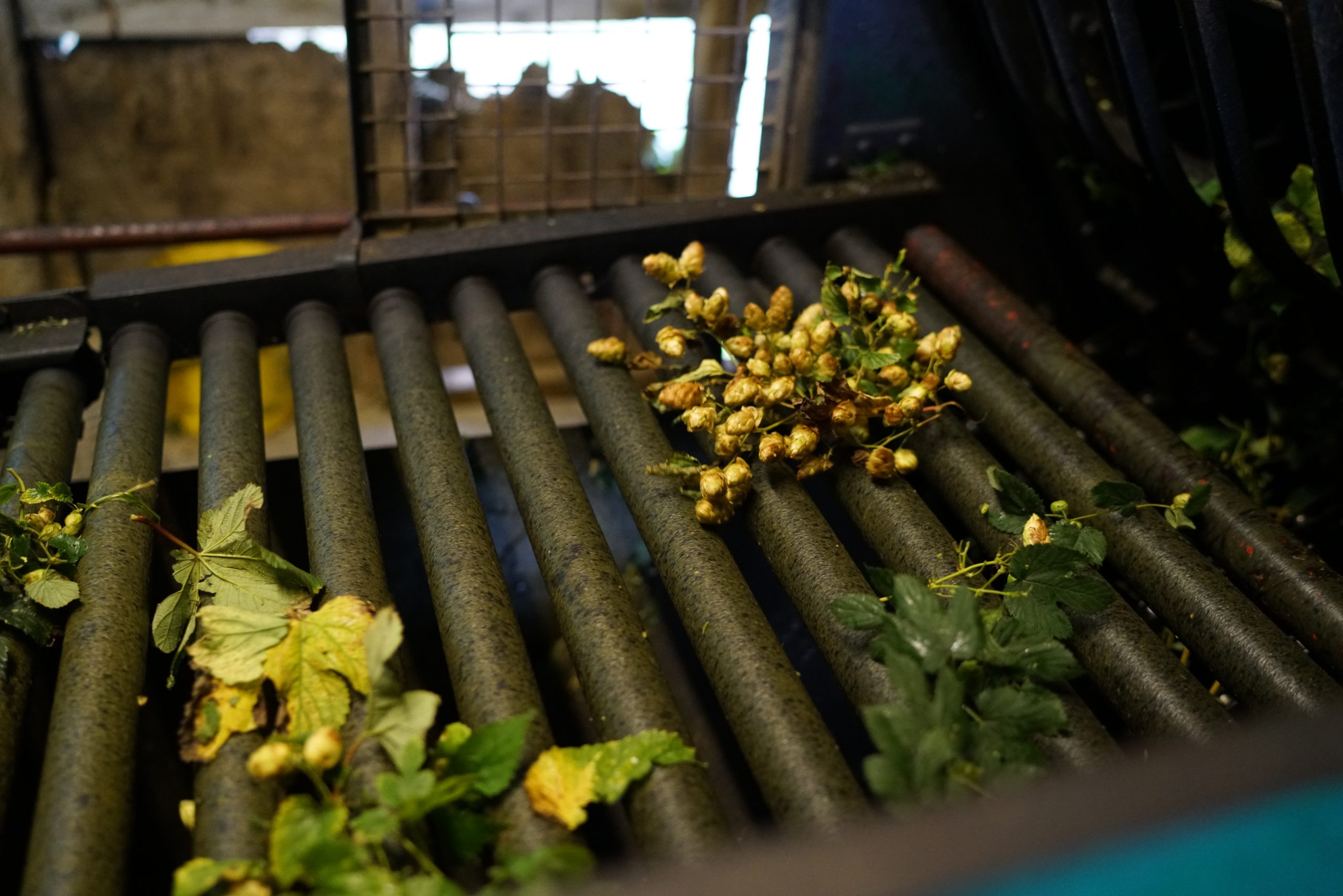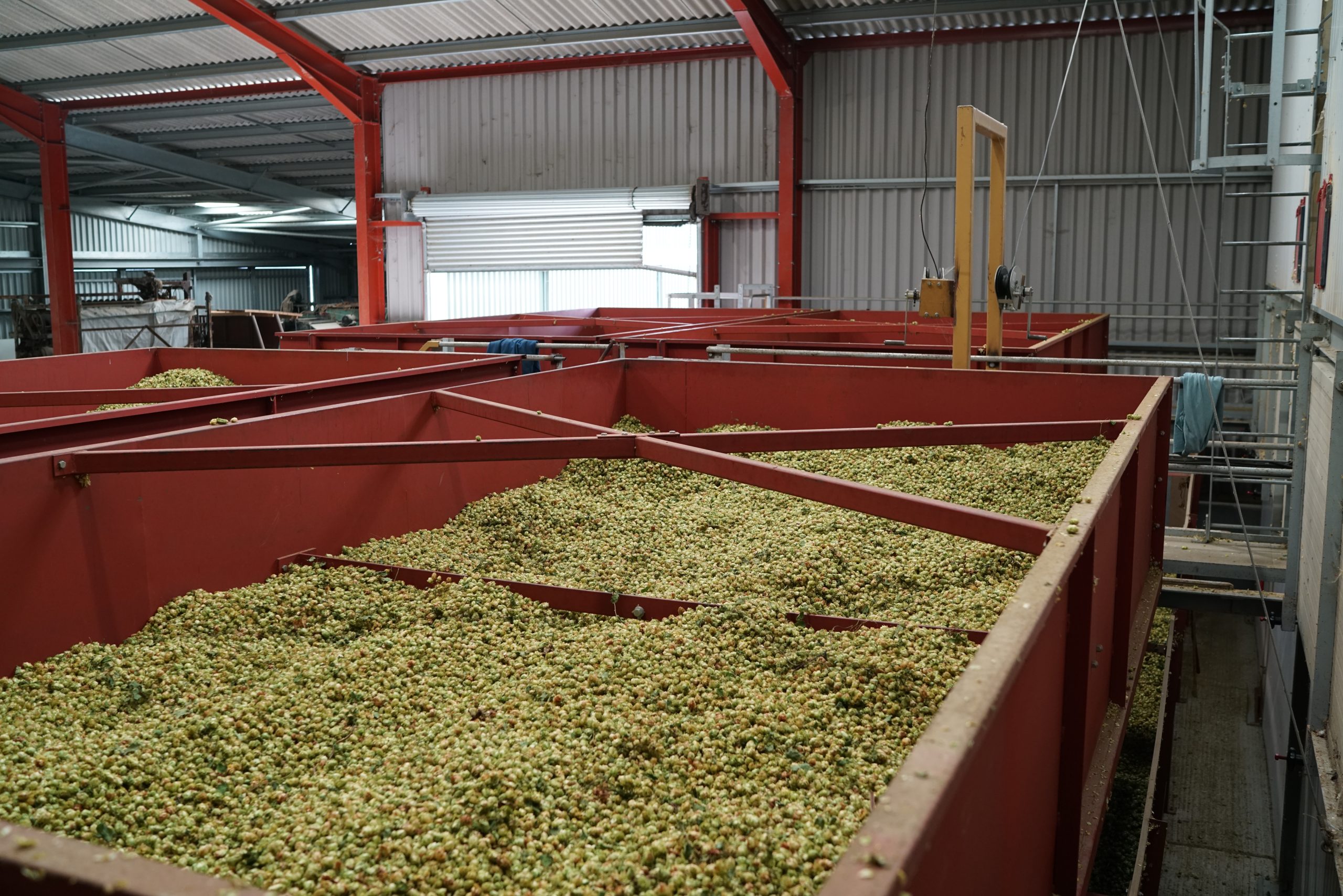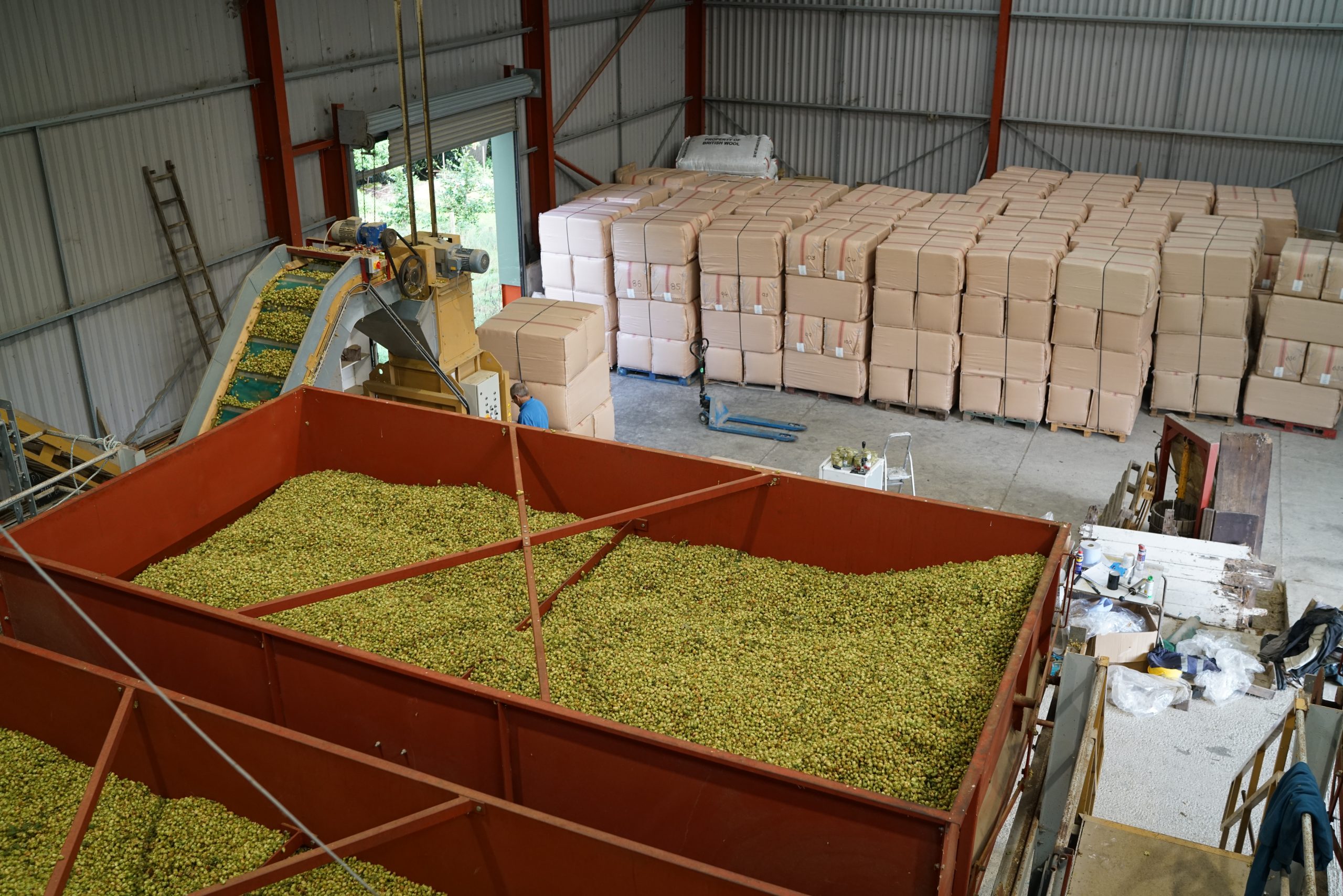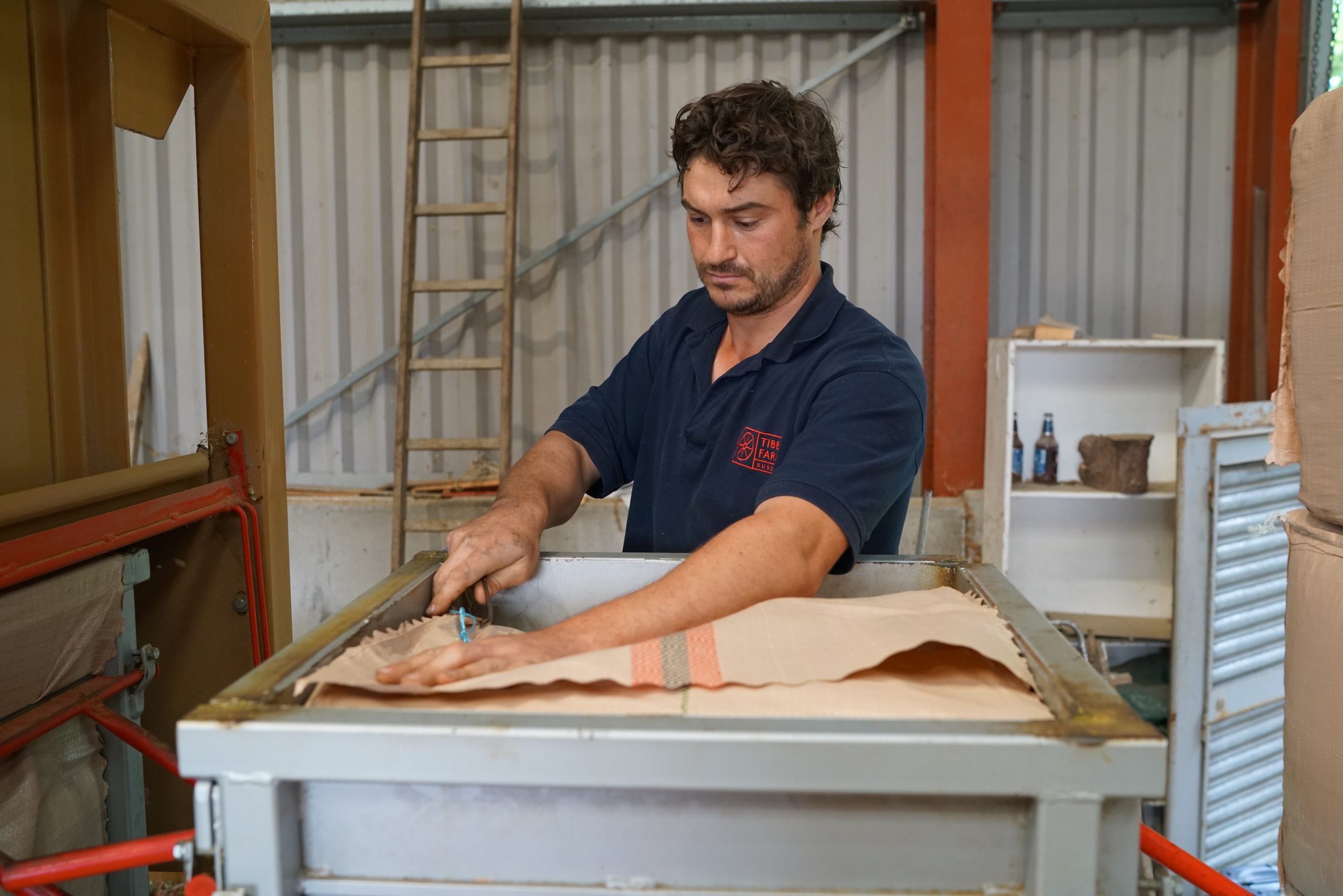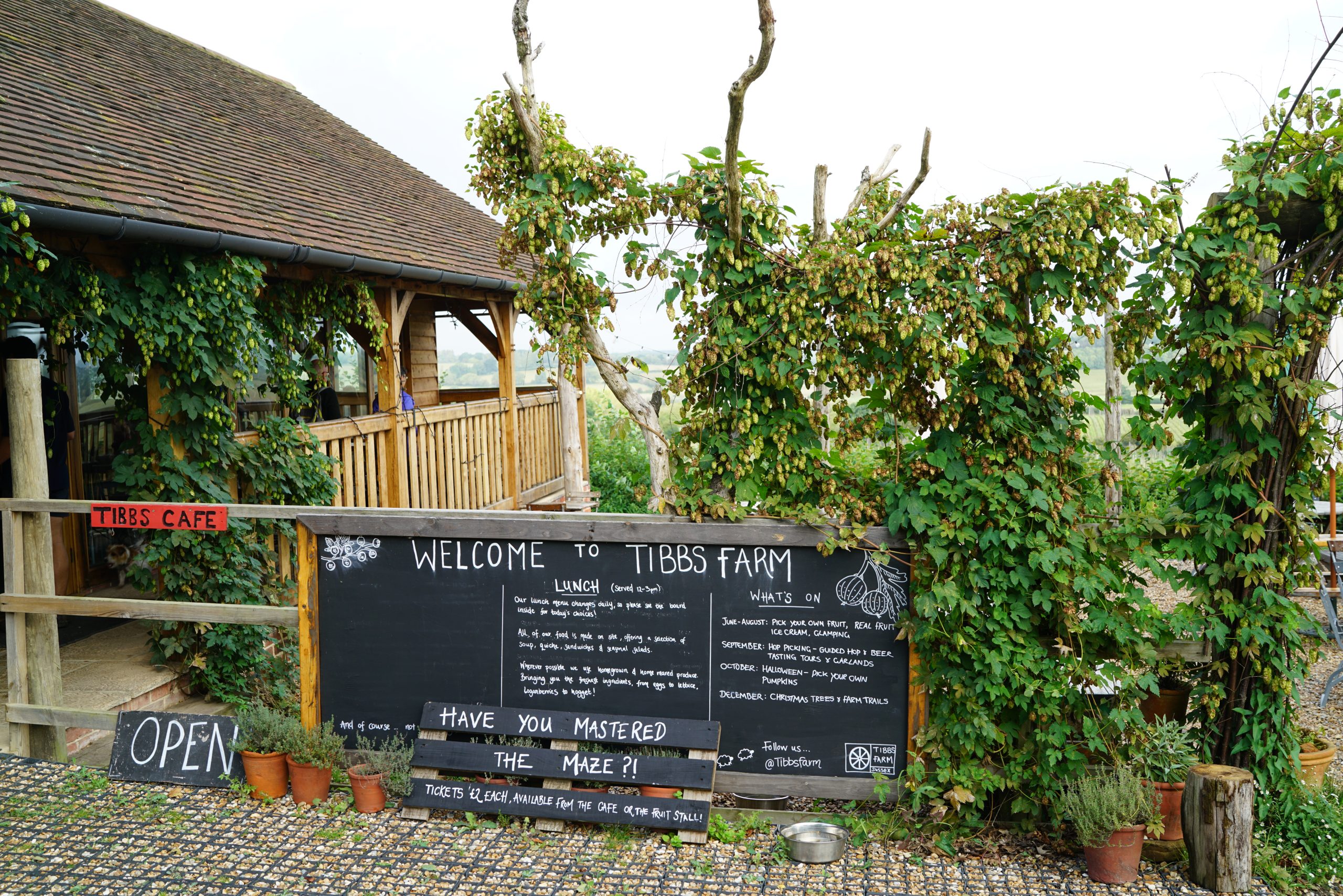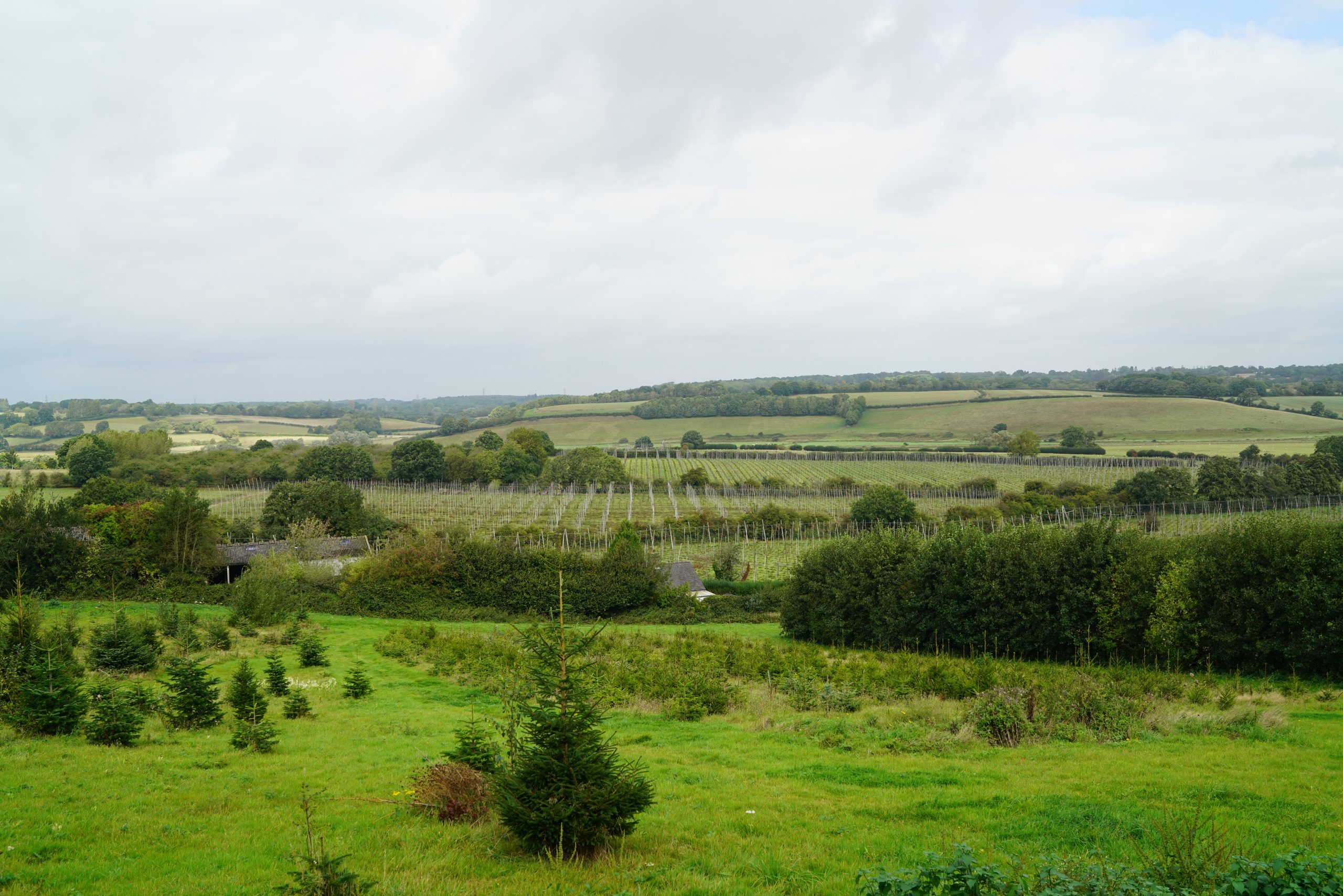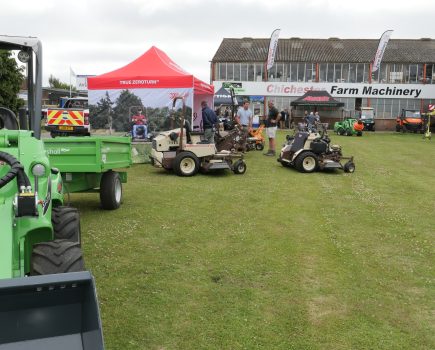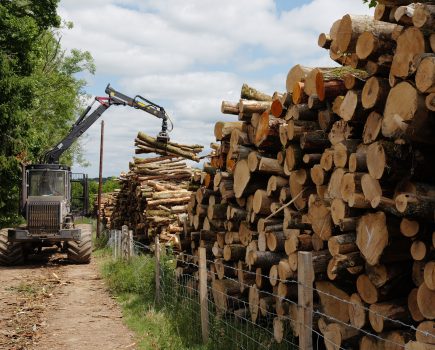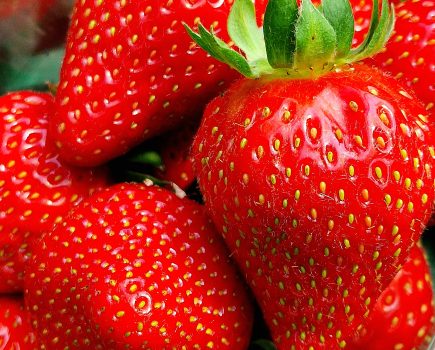This month Nigel Akehurst visits L Wheeler & Sons at Parsonage Farm in Udimore, East Sussex, to meet the Wheeler family and learn more about their thriving mixed farming and food enterprises.
Visiting the farm for their final day of the hop picking season, I met Simon Wheeler for a tour of the hop growing operation.
As we headed down to the hop garden on his quad bike, Simon explained that he and his brother Phil are the seventh generation of the Wheeler family to grow hops.
They grow four varieties on 40 acres of their farm but it’s been a tough few years financially, he added.
British growers have faced higher costs for labour and inputs coupled with lower prices brought about by pubs being shut during Covid-19 and then changing trends, with more consumers switching to drinking at home.
Not helping matters is the fact that of the 31 varieties of hops grown here, most are for traditional beers (brown ales such as Harveys), a market that has been hit badly by the Covid-19 pandemic and by more beer drinkers switching to lagers.
A recent BBC Farming Today report revealed that there are now only 50 hop growers left, with a number of larger growers going out of business recently. Britain was once a powerhouse of hop growing and brewing, but now Germany and the US account for between 75% and 80% of all hop production.
The industry is trying to adapt, said Simon, and there is work going into breeding varieties that offer citrus flavours and clean lager flavours to supply the demand for lagers. English Hops Limited (EHL) is helping develop new varieties to help brewers’ cut their current carbon footprint that reflects the need to transport hops half way round the world. He said sales of their hops had been more encouraging this year and that they were feeling a bit more optimistic about the future.
Arriving in the hop garden, I watched their hop picking team in action using an old Massey 135 with a small trailer behind. As the tractor drove between the hop poles, two pickers on the back trailer pulled down 15-foot bines until it was full.
Back at the yard the trailer was unloaded and the bines hung onto a machine by two workers. The first process is plucking, then the hops go through a long sorting machine that separates out the leaf from the hop. The hops then go onto a conveyor that transports them to a modern oast house next door to be dried to around 8% moisture in large kilns.
We moved next door and Simon showed me around their state-of-the-art oast house, which was designed and built from scratch in 2018. Unlike a traditional oast, where a lot of the work is carried out by hand, the whole facility is mechanised, with conveyors moving the hops to and from the kiln and several large bins where the hops are stored before being pressed into rectangular 50kg bales. It’s an impressive setup and the whole operation is managed by Robert Wheeler, Simon’s father.
Robert described their old workflow as “hard work”. Previously all the hops were put into bags, or ‘pokes’, and lifted onto a trailer by hand (80 bags to a load) and transported to the old oast house. Typically in a good year they would manhandle around 240 bags per day. They would then be unloaded by hand and emptied into the kiln to be dried and put into cylindrical bags, called pockets, and loaded by hand back onto a trailer to be taken to a storage shed ready for collection.
Our conversation moved on to the market. “The thing about hops is it’s forever been up and down. It’s not an easy business, but this particular year we are feeling a little more optimism with new sales coming in after three very difficult years – but that’s farming isn’t it?” Robert added with a wry smile.
One of the many challenges is recruiting staff to help during the four weeks of harvesting. They target local labour and try to attract university students, “though the long hours and manual work don’t suit everyone,” he said.
There’s also a lot of behind-the-scenes work that goes into managing the bines through the winter months, when they employ two horticultural workers to cut the bine plants back, and ensuring all the infrastructure is up to scratch. “Renewing all the wiring and hop poles is an expensive business and ‘the true test’ of whether you’re going to stay in the industry,” said Robert.
“It’s skilled, dangerous work – you’re up high and you have to get the (wire) tensions about right. It’s also hard to find the people to do it these days,” he added.
They put up their last hop garden in 2014 and are committed to staying in the industry. The Wheeler family can trace its hop-growing roots back to 1690, with his father Kenneth Wheeler moving down from Kent to Parsonage farm in 1956.
Robert and his brother David continued the hop growing and family farming tradition and now the next generation is taking up the reins.
Sheep
In addition to hops the family runs a number of other enterprises on the farm, including a flock of 1,600 Romney ewes mainly on their lower marsh ground.
They lamb outdoors in two batches, the first in March and the second in April, explained Simon. Percentages were a bit disappointing this year, not helped by the drought last summer, but lambing went well. The biggest challenge was grass, with much of their marsh ground underwater until the weather improved.
The vast majority of their lambs are sold as stores through Ashford, with a small percentage kept back for their own farm feast events that they run from a venue below the Tibbs Farm café.
Pick Your Own (PYO)
Originally set up by Robert and his brother David in 1978 at Tibbs Farm, next door to Parsonage Farm, the PYO covers an area of 25 acres. It’s a stunning site located on a slope, offering good drainage and spectacular views overlooking the Tillingham valley. Today they have one of the largest ranges of PYO fruits across the South East.
“The season starts off with strawberries and tart cooking gooseberries, with masses of other fruit following from June onwards,” said Simon.
As well as growing the traditional favourites, Tibbs also champions some more unusual fruits. This includes seven different varieties of gooseberries and most recently the planting of the first honeyberry plantation (that they know of) in the South East. In addition to the fruit, the PYO site also has its own beech maze which customers can explore.
Next generation and opening the Tibbs Cafe and farmshop
With the next generation coming into the fold, the family decided to open a farm café and shop at Tibbs Farm.
They also set about creating a modern brand that encapsulates the farm as a whole. Their Tibbs Farm logo features the wheel that was used by Kenneth Wheeler as a stamp on the farm’s apple bushel boxes.
The café itself has a laid-back, farm-to-fork feel and opened in the summer of 2020, said Simon. It’s been a worthwhile venture and gets busy in the summer months, with an influx of pick your own visitors and tourists spilling out onto a good-sized outdoor picnic seating area.
Tabby Wheeler, the youngest member of the family, is the mainstay of the cafe and recently returned from a three-month cookery course at The Ballymaloe Cookery School in Shanagarry, County Cork, Ireland.
Recruiting and retaining staff is challenging for the business, as is anticipating customer numbers, which can vary enormously from day to day. This year the business has run a number of farm feasts from a rustic venue below the shop which overlooks the valley.
These ticketed events have been great fun and provided a showcase for the farm’s produce. In addition to the farm feasts, hop picking tours are also available, these are promoted through social media channels that link back to their modern website at www.tibbsfarm.com. All social media and the website is run by Phil Wheeler, who I met briefly and who was busy in the cafe on the day of my visit.
Social media and website
With nearly 10,000 followers on Instagram and 6,500 followers on Facebook, social media is a key part of the marketing for the farm, café and shop. Checking out their accounts I spotted a recent post highlighting a visit from Marcus Wareing, who came hop picking with them for his latest BBC season of Tales from a Kitchen Garden.
A family farm fit for the future
Leaving the farm, I felt inspired by the different enterprises and how they have managed to create a family business capable of not only employing themselves but other people, too. So often family farms become neglected due to lack of opportunity or interest from the next generation. Tibbs Farm offers an alternative narrative and shows what can be achieved with a bit of investment and hard work.
I look forward to following their story online and will be back with my own family next summer for the pick your own season and some of their coffee and delicious cake in the café.
- Mark Cleverdon
- Simon Wheeler
Farm facts
- 450 acres of land owned, another 150 rented locally
- 40 acres of hops growing four varieties, Fuggle, Goldings, Admiral and Target
- Invested £400,000 on a new modern oast house completed in 2018
- 1,600 Romney ewes, all lambed outdoors in two flocks (one mid-March and the remainder in April). 95% of lambs sold as stores in Ashford and some finished and used for their own cafe and events
- 25-acre pick-your-own fruit enterprise set up in the late 70s when Robert and his brother David bought the neighbouring Tibbs Farm
- Tibbs Farm cafe and farm shop opened in the summer of 2020 as a farm diversification
- Started running Tibbs Farm feasts this year, along with hop harvesting tours
- Small flock of free-range hens and some woodland-reared pigs
- Next generation of Wheeler family now involved in the business – Simon, Phil, Emily and Tabby
For more like this, sign up for the FREE South East Farmer e-newsletter here and receive all the latest farming news, reviews and insight straight to your inbox.

